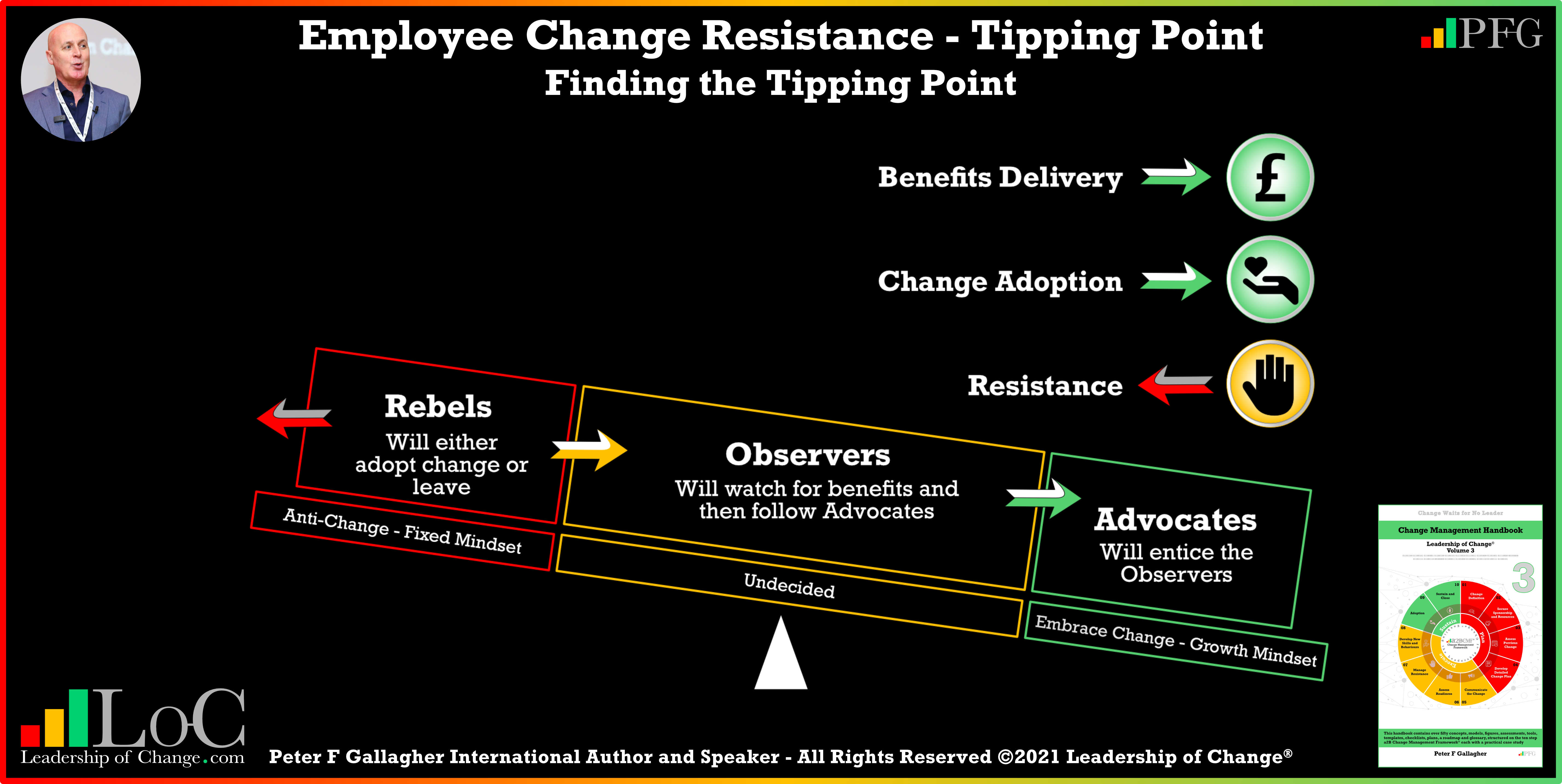Feb12

Change agents can be an organised group, leaders or individuals that undertake the task of leading, communicating and facilitating change in an organisation. Change agents embrace and lead change, moving the organisation towards adoption and sustainable change. They can play a vital role and an invaluable contribution to the organisation’s change especially if the change is being implemented across the organisation. The can be the conduit between the leadership and employees cascading the change message through every level of the organisation. The leadership should see them as a change business partner in the line selling their change vision. They can be a feedback loop how the employees are reacting to the change, they will be able to detect resistance, as well as what change tactics are working well and what tactics are not working. “Change agents with organisation credibility and change skills can be leader’s business change partner, providing a conduit to the employees to enhance change adoption” Change Agent Role: Change Agents can play a pivotal role in organisational change, especially in supporting the sponsor and communicating the change message to the employee groups involved in the change journey. These three groups of employees can be classified as: ‘Advocates’, ‘Observers’ and ‘Rebels’. Each group will react differently to organisational change and the Change Agents will provide different levels of focus, change readiness and implementation support. 1. Advocates: Change Agents are very much aligned with the ‘Advocates’, their positivity and energy should be captured and become part of the Change and Communication Plan. The coalition of Change Agents and ‘Advocates’ can have a massive impact in the organisation. 2. Observers: ‘Observers’ will monitor the ‘Advocates’ and assess if the change is benefiting them. If this appears positive, they will tend to move towards being receptive to the change. To facilitate the transition of the ‘Observers’ from the current state “a” to the desired and improved state “B”, the Change Agent and ‘Advocates’ should work together to create employee desire to move towards the ‘Tipping Point’. Communication, direct engagement, targeted messaging and events such as socialising the future state will help the ‘Advocates’ to adopt the change. 3. Rebels: They tend to resist change blindly, even if the change is to their benefit. The default reaction is that change is a bad thing and will put them at a disadvantage. While this can, in some cases, be put down to bad experience, there is also fear of the unknown and the new skills required. The Change Agent can help greatly in this area by directly engaging this group or the individuals face-to-face. They should listen with empathy to understand their concerns, communicating the organisation change business case. The concerns and communication feedback should be recorded and fed back to the Change Team and Sponsor so the change approach can be modified to reduce resistance and increase change adoption. “Without trust you will not change people" #ChangeManagement #LeadershipOfChange #a2BConsulting offering: C-Suite Change Consulting, Change Leadership Alignment and Change Management Gamification Source: https://www.peterfgallagher.com/single-post/change-agents-as-business-partners
Keywords: Leadership, Change Management, Business Strategy
 Lateral Moves: The Most Overlooked Succession Strategy in Companies
Lateral Moves: The Most Overlooked Succession Strategy in Companies The Asset Play: Timing, Structure & Global Arbitrage
The Asset Play: Timing, Structure & Global Arbitrage  The Orchestra Needs a Conductor: Why Multi-Model Agents Require H2E Governance
The Orchestra Needs a Conductor: Why Multi-Model Agents Require H2E Governance The Role of Memory in Modern-day Business
The Role of Memory in Modern-day Business The Architectures of Permanence: A Comparative Analysis of the "Big Three" AI Strategies (2026)
The Architectures of Permanence: A Comparative Analysis of the "Big Three" AI Strategies (2026)